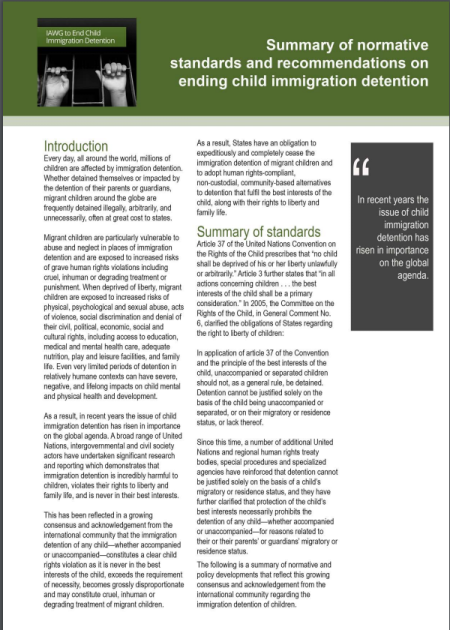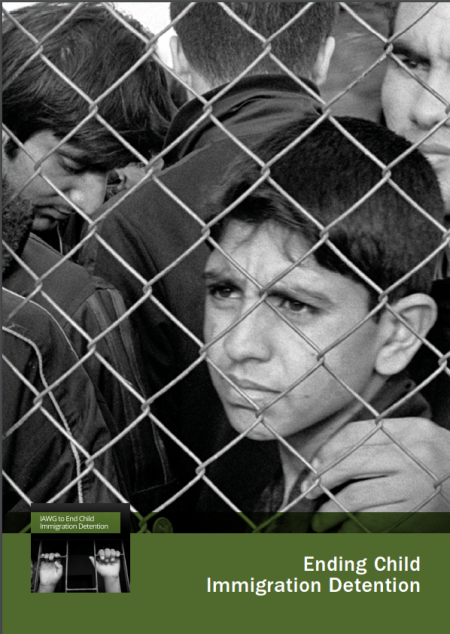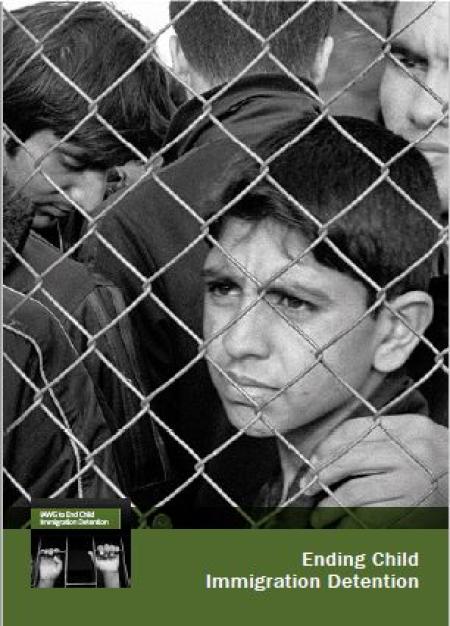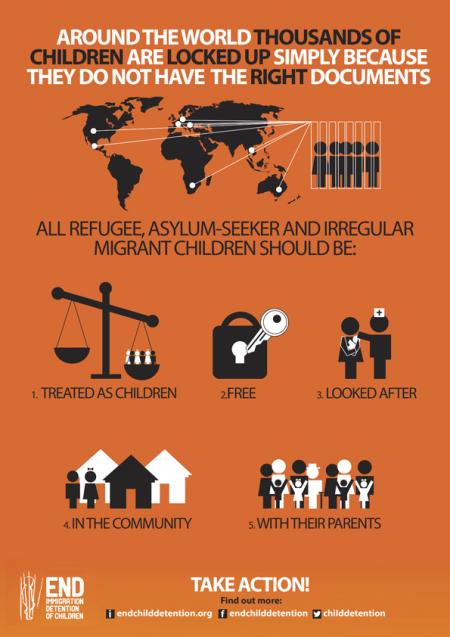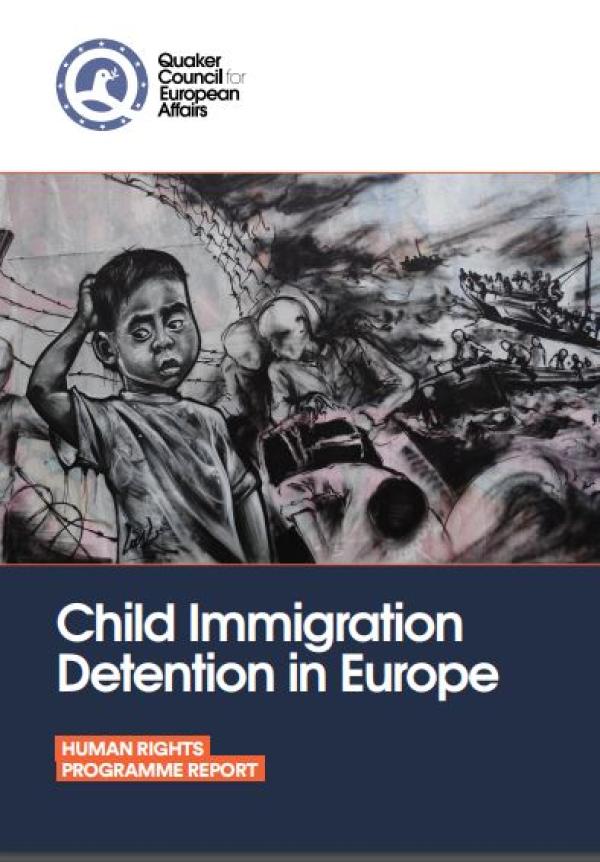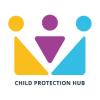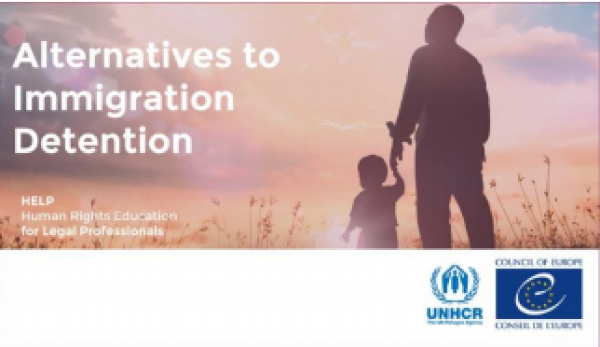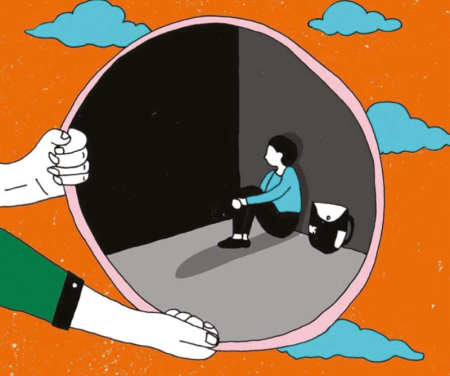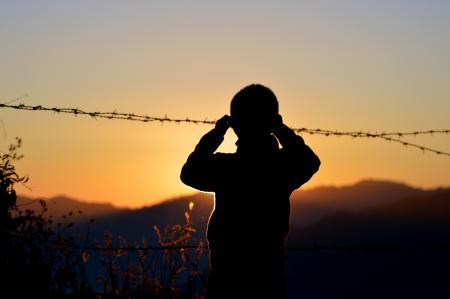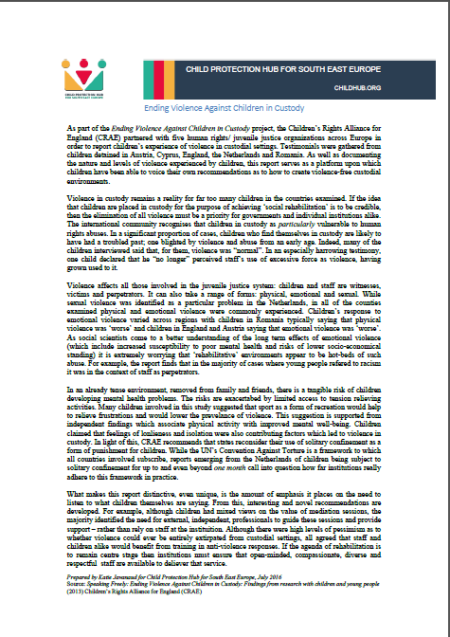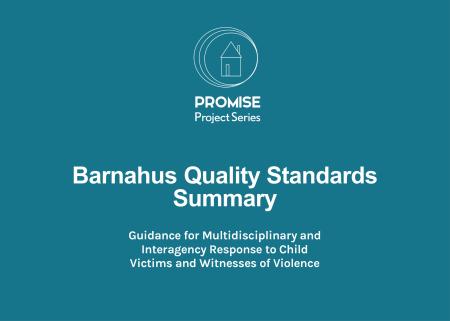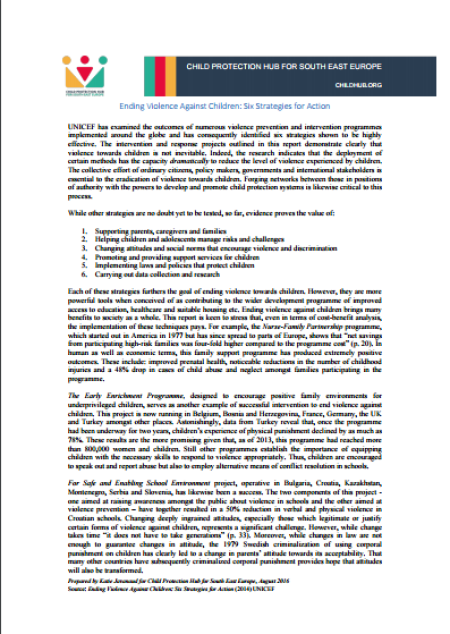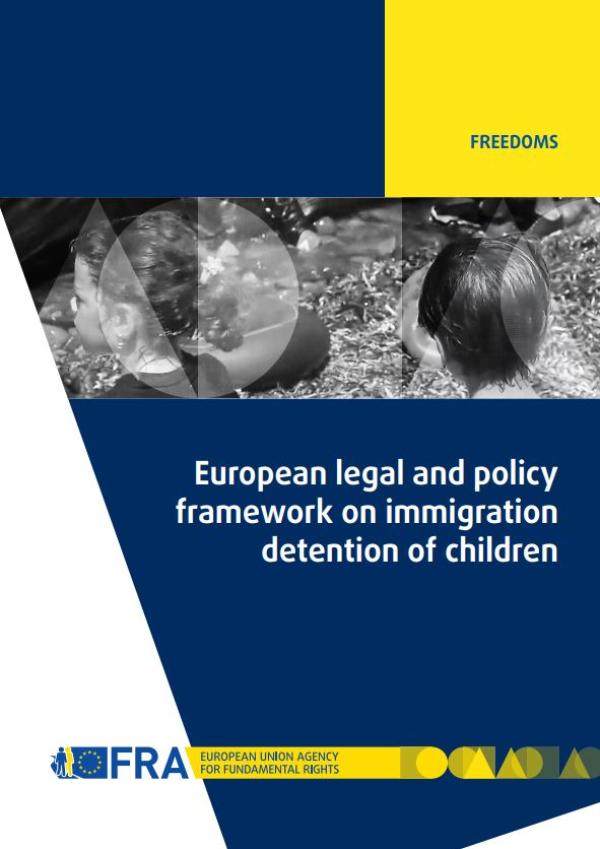
Every day, all around the world, millions of children are affected by immigration detention. Whether detained thmselves or impacted by the detention of their parents or guardians, migrant children around the globe are frequently detained illegally, arbitrarily, and unnecessarily, often at great cost to states.
Migrant children are particularly vulnerable to abuse and neglect in places of immigration detention and are exposed to increased risks of grave human rights violations including cruel, inhuman or degrading treatment or punishment. When deprived of liberty, migrant children are exposed to increased risks of physical , psycological and sexual abuse, acts of violence, social discrimination and denial of their civil, political, economic, social and cultural rights, including access to education, medical and mental healthcare, adequate nutrition, play and leisure facilities, and family life. Even very limited periods of detention in relatively humane contexts can have severe, negative, and lifelong impacts on child mental and physical health and development.
As a result, in recen years the issue of child immigration detention has risen in importance on the global agenda. A broad range of United Nations, intergovernmental and civil society actors have undertaken significant research and reporting which demonstrates that immigration detention is incredibly harmful to children, violates their rights to liberty and family life, and is never in their best interests.
This has been reflected in a growing concensus and acknoledgement from the international community that the immigration detention of any child - whether accompanied or unaccompanied-constitutes a clear child rights violation as it is never in the best interests of the child, exceeds the requirement of necessity, becomes grossly disproportionate and may constitute cruel, inhuman or degrading treatment of migrant children.
As a result, States have an obligation to expeditiously and completely cease the immigration detention of migrant children and to adopt human rights-compliant, non-custodial, community-based alternatives to detention that fulfill the best interests of the child, along with their rights to liberty and family life.
(Text taken from introduction section)


